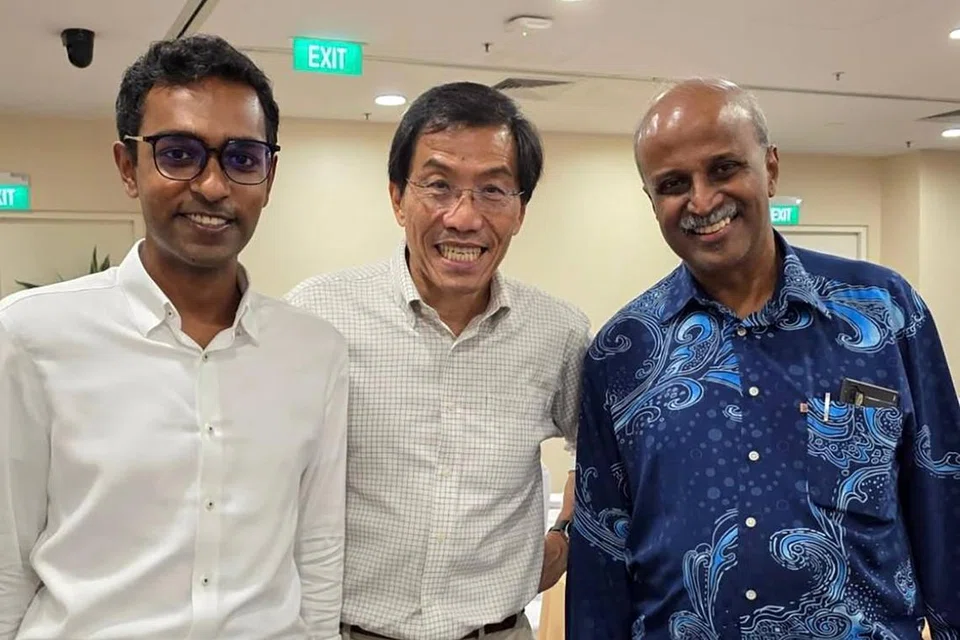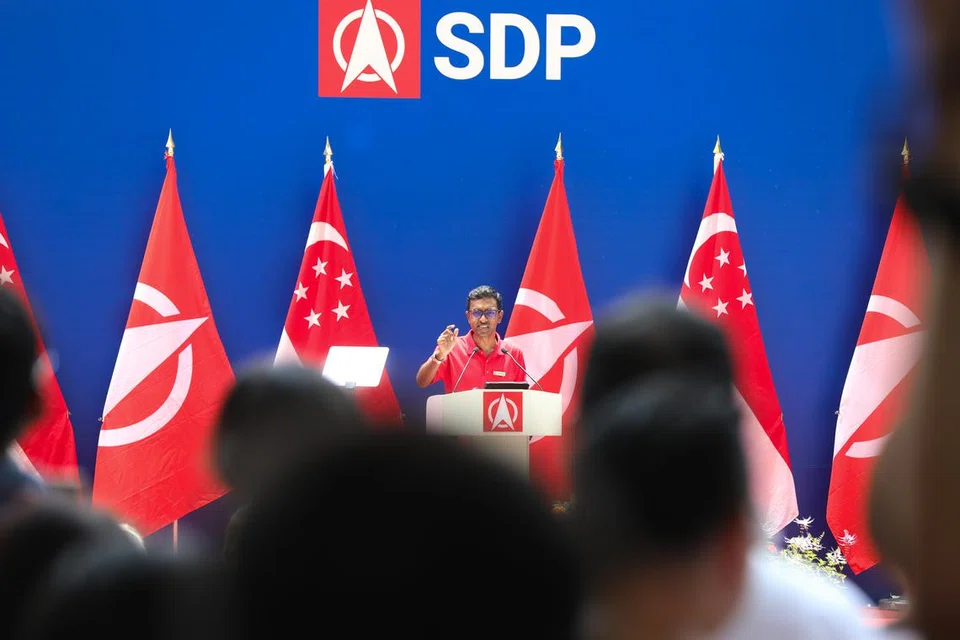At 28, with a shy disposition and sharp instincts, Ariffin Sha is a new kind of political actor – born from digital-native sensibilities but shaped by real-world stakes. Behind the public persona, he’s a night owl and self-described caffeine addict. Ariffin’s preferred choice, kopi peng siew dai (ice coffee less sugar), is selected with a wink of humour. “The closer to my skin colour, the better,” he quipped.
He loves rava thosai, has had Don Omar’s Danza Kuduro on loop for weeks, and finds himself drawn to quieter ambitions – like scaling the hills of Malaysia or picking up Mandarin and video editing, which he deems are practical skills for any Singaporean politician.
Outside his professional commitments, he said another path might have led him to teaching. “Good teachers are important and impactful,” he said. He imagines the classroom as a place not unlike the political arena, where opinions are shaped and ideas are tested. But for now, politics has taken centre stage.
As the general elections this year drew near, the Singapore Democratic Party (SDP) found itself in a familiar predicament – there was a lack of candidates stepping forward to contest Marsiling-Yew Tee GRC, where Prime Minister Lawrence Wong was expected to stand. Consequently, Ariffin found himself thrust into the spotlight.
He was not part of the old guard, nor had he paid decades of dues in party machinery. Though he had written speeches for SDP chief Chee Soon Juan, he had never stood in front of a crowd himself. Now he was onstage, in the most symbolic of contests, not to win, but to represent something else entirely.
“I knew I wouldn’t win,” he said. “But someone had to try.”

He believes in the long game, in change that bends not with force, but with persistence. He referenced Martin Luther King Jr.’s quote about the arc of the moral universe. “I do believe it bends toward justice,” he said. “I’ve already seen it in the past few years. But you need to have hope. If you don’t have that hope, it becomes very difficult. Not just to do the work, but to live through the day.”
His mother had, what he refers to as “a typical Indian mum’s response” to his decision to contest against the Prime Minister. “What are you doing?” she asked, then followed up with: “I support you, just be careful,” Ariffin said, laughing. “What is support without concern?”
As the founder of Wake Up Singapore, an independent media platform, Ariffin has become a lightning rod in journalism and activism – amplifying marginalised voices, surfacing overlooked stories and sometimes, facing legal heat for doing so.
In August 2024, he found himself caught in a tangle involving misinformation on the website. While he avoids rehashing the details, he calls it a turning point. “People can lie or mislead about literally anything,” he said. “So now we have SOPs. We’re more careful.” He spoke about media with the same passion he brings to activism, understanding the challenges in verifying allegations and interrogating sources.
Wake Up Singapore rarely publishes long-form investigations; most of its work is about surfacing voices and stories that often go unheard.
That ethos extends to how he thinks about democracy. “We may not agree politically,” he said, “but we may agree migrant workers shouldn’t be transported on lorries. Let’s start from there.” Ariffin said he aims to convene conversations rather than dominate.
His emergence into public life was not without its tensions. The spotlight on Ariffin intensified when he calmly addressed a racial slur made by a party colleague during a rally. He used the moment not to rebuke, but to explain. “Some people believe that the work of educating shouldn’t fall on us (the minorities),” he said. “But sometimes, I think we do need to take one for the team.”
“We need proper anti-discrimination legislation,” he said. “Of course, it won’t make racism go away overnight, but the symbolism matters. It tells minorities that the law is on our side.” He also believes in removing racial classifications from national registration identity cards (NRICs), an idea that might sound small to some, but to Ariffin, signals a larger shift toward a post-racial Singapore.
“Race on our NRICs doesn’t reflect modern-day Singapore anymore,” he said, pointing to growing multiracial identities.
Even now, as an aspiring politician, Ariffin is careful not to overstate his ambitions. When asked if he sees himself becoming Prime Minister one day, he snickered. “Realistically, no. But I hope to see an Indian Prime Minister one day. Singaporeans do judge people on merit, even if meritocracy has its flaws.”
He cited opposition party pioneers such as Lim Chin Siong and Chia Thye Poh as his sources of inspiration. “The odds are stacked against you, but that’s what makes the small wins worthwhile. If you can succeed despite all this, then it means the people are with you.”


